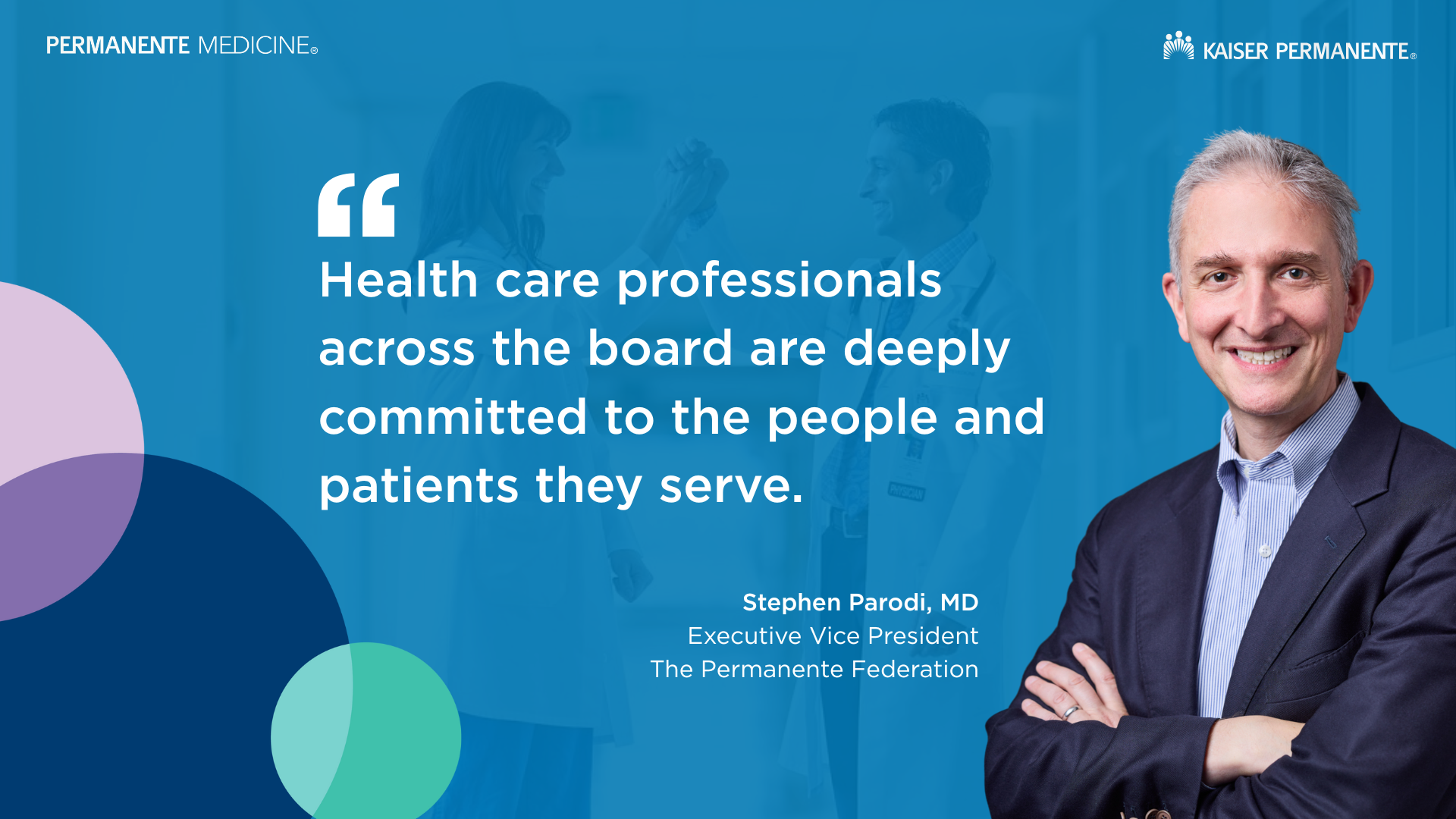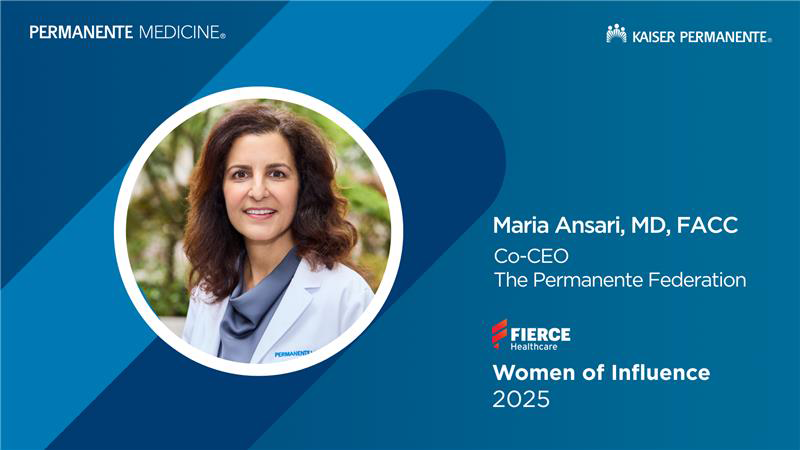Explore valuable lessons learned from Permanente physicians in 2025's rapidly changing health care landscape.

Spotlighting physician leadership in an era of change
Stephen Parodi, MD, and AMA President Jesse Ehrenfeld, MD, discuss the challenges and opportunities facing physicians today
After a global pandemic that fundamentally changed society, physicians’ ability to practice medicine is being threatened by multiple factors: disinformation, declining public trust in science, a chronic physician shortage, and policies that criminalize certain types of medical care. During a recent Permanente Live webinar, Jesse Ehrenfeld, MD, MPH, president of the American Medical Association, and Stephen Parodi, MD, executive vice president at The Permanente Federation, discussed how physician leadership can address many of the challenges plaguing health care today.
“Physicians are called on to care and heal, which is exactly what the world needs most right now,” said Stephen Parodi, MD, executive vice president of The Permanente Federation. “The nature of our vocation demands that we meet this moment, overcome it, and create a better, more hopeful future for all.”
As administrative tasks increasingly cut into time better spent with patients, a prevalent health care topic is the potential of artificial intelligence to streamline and transform care.
“We have a unique opportunity to make sure that the evolution of AI in medicine is benefiting patients, physicians, and the health care community at large,” said Dr. Ehrenfeld.
He also referenced the potential pitfalls of introducing new technology too fast and stressed the importance of seeking physician input at the earliest stages of the development cycle to ensure that innovations improve workflows and patient care without creating new challenges.
Supporting the physician workforce
The conversation also touched on the shortage of physicians to meet the needs of patients in the United States, which could see an estimated shortfall of up to 124,000 physicians across all specialties by 2034, according to data from the Association of American Medical Colleges.
“This isn’t a theoretical crisis a decade from now,” said Dr. Ehrenfeld. “It’s a serious problem that we’ve got to address today, because it takes 10 years to train and educate a physician. The work to ensure that patients don’t experience a physician shortage in the next decade has to start today.”
More than 83 million people in the United States live in areas with scarce access to a primary care physician. The shortage has been exacerbated by physician burnout, which continues to be a concern following the strain placed on the health care system during the COVID-19 pandemic and the variant surges that have followed.
Related physician leadership story: “Making clinician wellness part of the system”
Dr. Ehrenfeld emphasized that burnout does not stem from a deficiency in resiliency among physicians, but instead requires system-wide solutions that support their physical and mental health.
He also touched on the importance of supporting diversity in medical education and training, noting that patients receive better care when diverse communities are served by a physician workforce that looks like them.
Protecting the physician-patient relationship
While trust in medical institutions has declined in recent years, Drs. Parodi and Ehrenfeld discussed how physician leadership can rebuild trust in science and medicine, including by delivering credible messages that cut through the noise of misinformation on social media.
Related physician leadership story: “Preserving the doctor-patient relationship”
Now more than ever, strong physician-patient relationships are crucial to combatting the threat of anti-science rhetoric and organized disinformation campaigns. Physician-patient bonds have been strained by the politicalization and criminalization of certain types of care, specifically LGBTQ+ and women’s reproductive health — but Dr. Ehrenfeld sees hope in how physicians across the country are responding to these challenges.
“Physicians are stepping up to combat misinformation, eliminate health disparities, and get every patient the care they need,” he said.
Watch the full replay of the webinar above.


